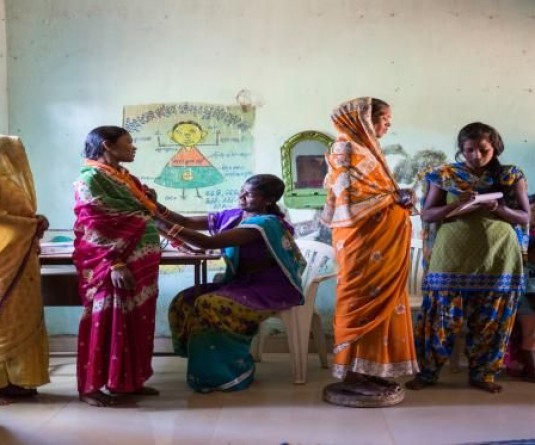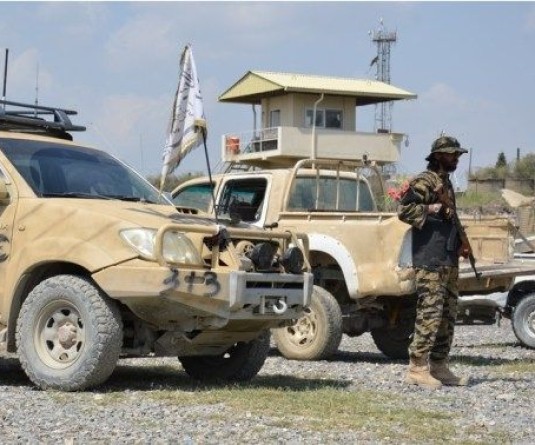Indigenous women, leading the fight against climate change
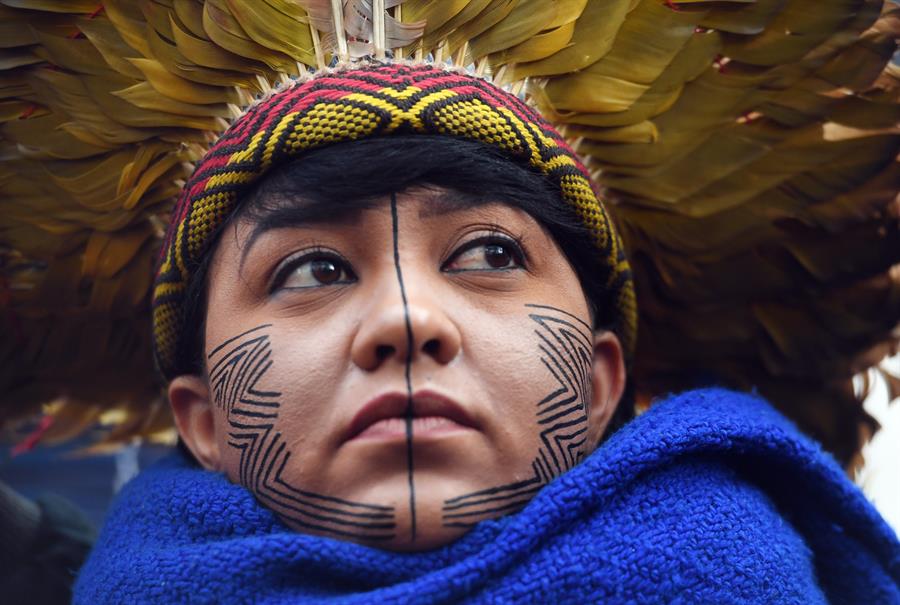
A closer view of one of the indigenous leaders from Brazil holding a demonstration outside the Brazilian embassy in London, Britain, 14 November 2019. EPA-EFE/FACUNDO ARRIZABALAGA
Madrid, December 4 (efe-epa).- From Asia to South America, indigenous women's movements work together demanding more presence and recognition worldwide as frontline fighters against climate change.
“Women have a crucial role in many aspects and we can contribute to the solution of the climate change,” Pirawan Wongnithisathaporn, from Asia Indigenous Peoples Pact (Thailand), told EFE.
As the ones who directly suffer the global warming effects, women from indigenous communities around the world claimed for their role in climate action during the ongoing 2019 Madrid’s Climate Summit, where they took part in a conference.
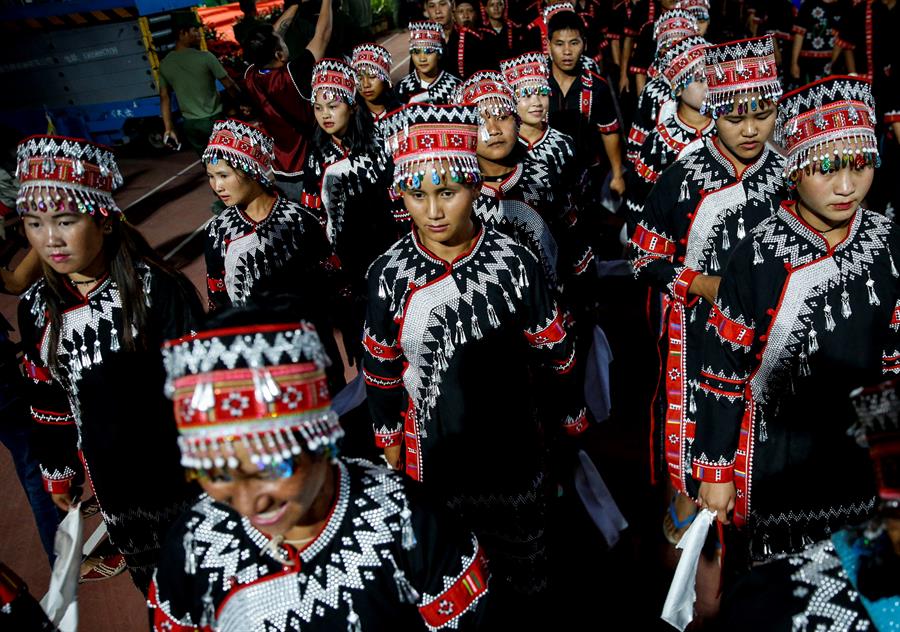
In most traditional communities, food security, healthcare are roles adopted by women.
“We have knowledge in many things and natural resources and we have traditional knowledge, Wongnithisathaporn added.
“We can find food in the forest and we also manage water and we also manage the soil in a sustainable way.”
Thai indigenous women are the defenders of land and resources in the remaining forests in Thailand, she recalls.
"We are not visible yet, Naw Ei Ei, Director of NGO Promotion of Indigenous and Nature Together (POINT), from Myanmar, said.
"People don't appreciate our skills and knowledge," she added.
In Africa, where traditional medicine and ceremonies depend directly on the forests, protecting biodiversity is crucial to guarantee a future for the generations to come.
“Indigenous communities back home have several ceremonies that are closely attached to the forest so it becomes a very important issue and a very important thing to protect,” Naijelijeli Tipap, PINGO's Forum (Tanzania) said.
The human-nature relationship is at risk for hundreds of indigenous peoples since “human beings demand the use of protected areas for cultivation or other life activities.”
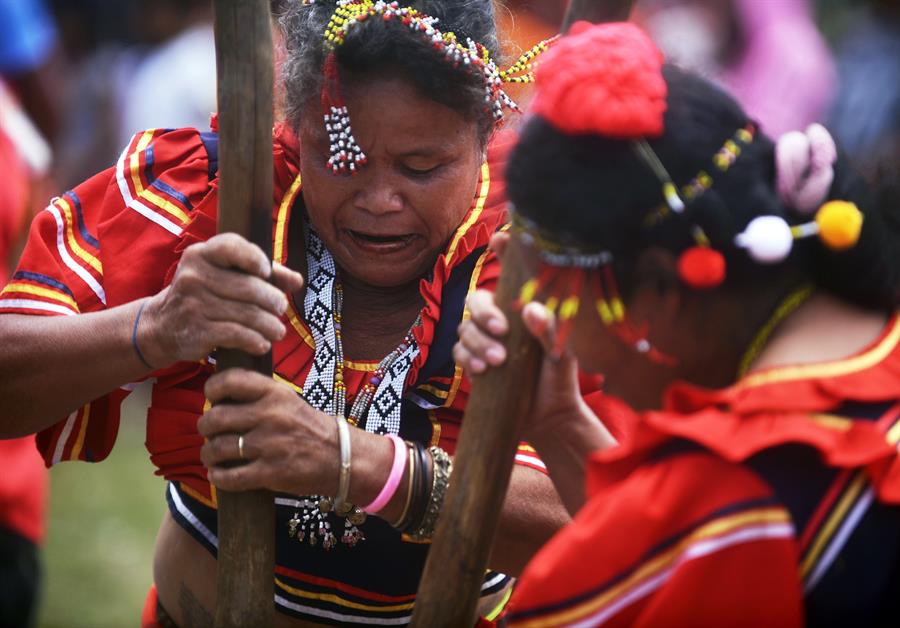
Direct human action in Tanzania with large scale tree cutting and shifting agriculture has led to deforestation, a serious problem within the country that, according to Naijelijeli, can be solved with the aid of indigenous’ knowledge.
“Fighting climate change is the main issue where we’re trying to use the indigenous knowledge that we have in order to protect these areas, which have a close relationship with the communities,” she said.
However, climate change is not the only problem they face.
Women who work on environmental protection from all corners of the world also experience violence, sexual harassment and discrimination.
"Racism is also violence because it has a psychological impact on you," Melania Canales, from the National Organization of Indigenous Andean and Amazonian Women (ONAMIAP), told EFE.
“Indigenous women suffer triple discrimination: for being women, for being indigenous and for being poor.“
Canales highlighted the importance of a sustainable economy in the Andean region and the protection of collective rights, such as land rights.
Within the traditional communities, women are also the ones who transfer the community’s knowledge to the next generations.
“The young generation may face severe problems if the way we live and the way we’re doing right now don’t change,” Wongnithisathaporn said.
“Young people have a crucial role in continuing this struggling (against climate change) and joining the movement to make sure that our rights are not violated.”.
Indigenous women are convinced of the importance of their duty to meet the 2015 Paris Agreement’s goals, which Madrid’s Summit is expected to beat.
They are demanding to be part of decision making.
"We don't only stay in the kitchen,” Canales added.
'We want to be presidents and community leaders."


